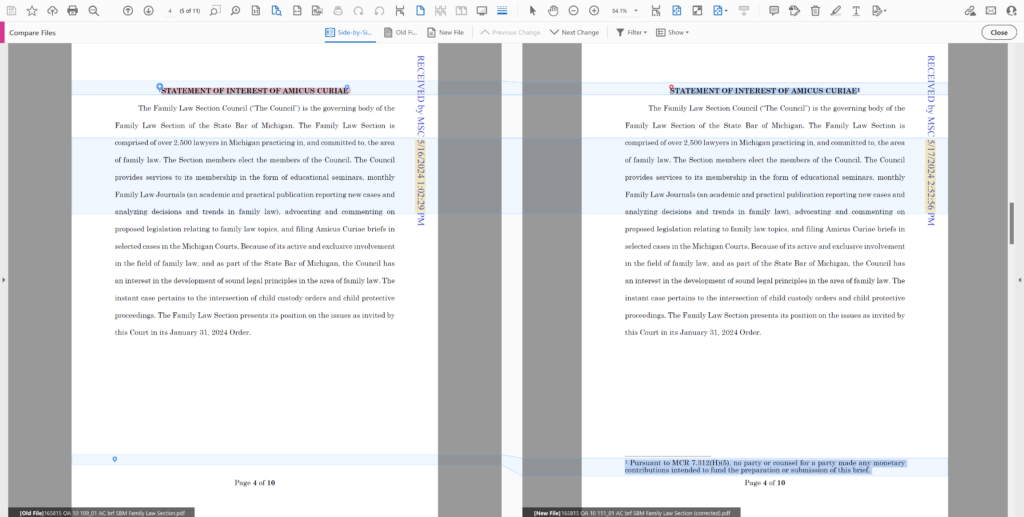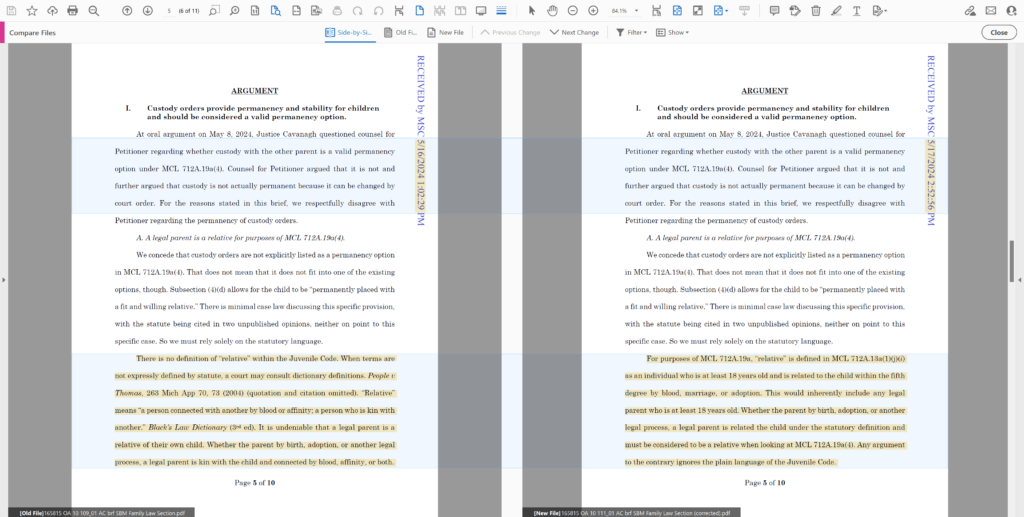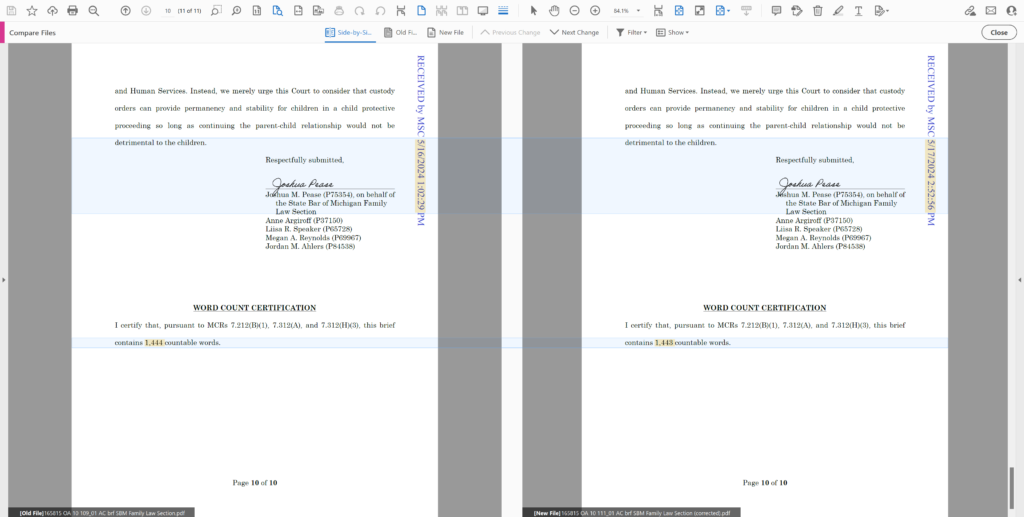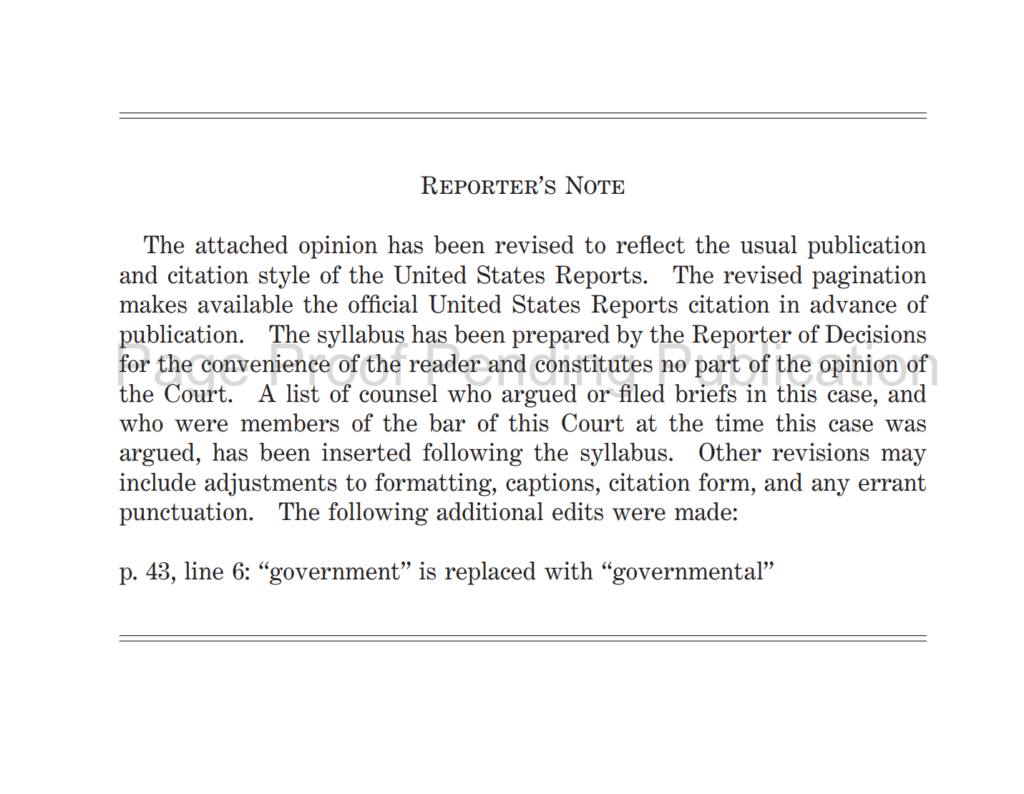It happens to everyone: jurists, lawyers, paralegals, and the self-represented. A letter is sent. A brief is filed. An opinion or order is issued. And only later a typo, innocent misstatement, omission, or new information is learned that requires correction.
The correction is made and sent out, but the corrected version doesn’t identify what was changed.
Fortunately, the full version of Adobe Acrobat includes a “compare files” feature that quickly spots it for you and creates a helpful “Compare Report” version.
Here are some screenshots from a “Compare Report” that compares the May 16, 2024 amicus brief filed by the State Bar of Michigan’s Family Law Section against its corrected May 17, 2024 filing.
The highlights are part of Adobe Acrobat’s compare report functionality.



Some may hesitate to purchase an Adobe Acrobat (full) license. The time-saving “compare report” feature, however, is another example of how it’s a worthwhile investment.
N.b., in more recent years, the Supreme Court of the United States started noting when changes have been made from its original slip opinions. For example, the syllabus in the Department of Agriculture Rural Development Rural Housing Serv. v. Kirtz slip opinion incorrectly quoted:
Section 1681a provides a definition of “person” that includes “any . . . government . . . agency,” §1681a(b), and that applies to the entire Act. That other statutory provisions in the FCRA and elsewhere address the question of sovereign immunity in arguably more obvious terms, see, e.g., §1681u, does not make the waiver of sovereign immunity in the provisions at issue here any less clear. Pp. 4–9.
The later proof version, pending publication, however, was corrected to:
Section 1681a provides a defnition of “person” that includes “any . . . governmental . . . agency,” §1681a(b), and that applies to the entire Act. That other statutory provisions in the FCRA and elsewhere address the question of sovereign immunity in arguably more obvious terms, see, e. g., § 1681u, does not
make the waiver of sovereign immunity in the provisions at issue here any less clear. Pp. 48–52.
The last page of the proof version now always includes a Reporter’s Note to identify whether and how any additional edits were made from the original slip opinion:

